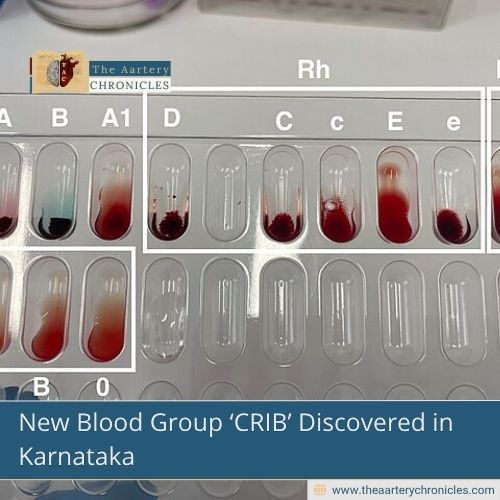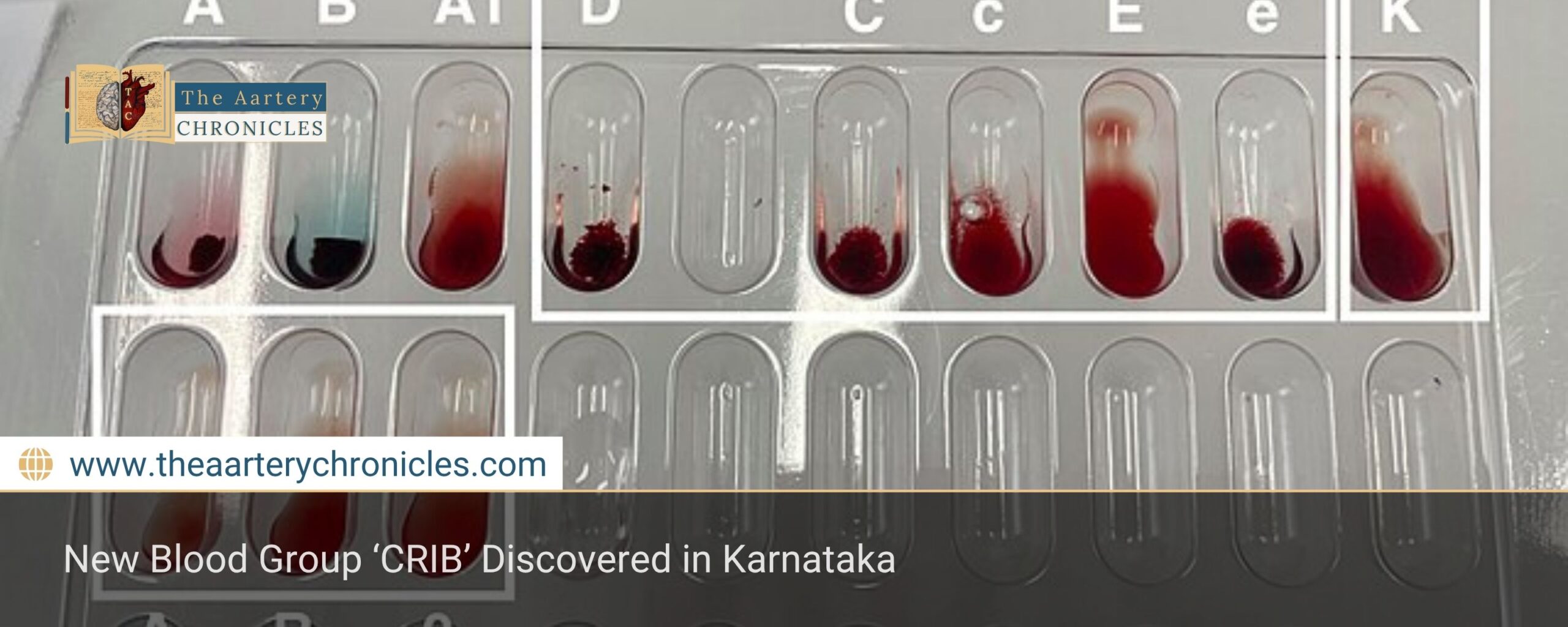

New Blood Group ‘CRIB’ Discovered in Karnataka
In a groundbreaking medical discovery, a 38-year-old woman from Kolar district in Karnataka has been identified with a previously unknown blood group. This rare case came to light when she was admitted to a hospital for heart surgery, and doctors noticed that her blood was not compatible with any available donor blood, even though she was classified as O Rh-positive, the most common blood type.
A Mysterious Case of Incompatibility
Despite appearing to have a standard blood group, her body reacted against all O-positive blood samples. Concerned about this unusual reaction, doctors at the hospital referred her case to the Advanced Immunohematology Reference Laboratory at the Rotary Bangalore TTK Blood Centre.
There, advanced blood testing revealed that her blood was panreactive, meaning it was incompatible with all standard blood group samples. This raised suspicions of an extremely rare or possibly unknown blood type.
Family Testing and a Critical Surgery
To find a suitable blood donor, samples from 20 of her family members were tested. Unfortunately, none were a match. Due to this, the surgical team had to proceed with the cardiac operation without a transfusion. Thanks to careful planning and expert care, the surgery was completed successfully.
Unveiling a New Blood Group: CRIB
The woman’s and her family’s blood samples were sent to the International Blood Group Reference Laboratory (IBGRL) in Bristol, UK, for further investigation. After ten months of detailed research and molecular analysis, scientists discovered a new blood group antigen, never seen before anywhere in the world.
This newly discovered antigen has been officially named CRIB. The name comes from the Cromer blood group system (abbreviated as “CR”), and the initials “IB” stand for India and Bangalore, acknowledging where the discovery was made.
Building a Rare Donor Registry in India
In response to this discovery, the Rotary Bangalore TTK Blood Centre has launched a Rare Donor Registry, in partnership with the Karnataka State Blood Transfusion Council, the Indian Council of Medical Research (ICMR) in Mumbai, and the International Society of Blood Transfusion.
This registry aims to identify and support individuals with rare blood types across India, ensuring they receive safe and compatible transfusions when needed. Dr. Ankit Mathur from the Rotary Bangalore TTK Blood Centre noted that their team has previously identified and managed several other rare blood group cases, including D- -, Rh-null, and In(b)-negative types. These cases have also been shared at international medical forums.
Conclusion
Blood compatibility is vital during surgeries and emergency care. Discovering a new blood group antigen like CRIB not only adds to global medical knowledge but also helps improve transfusion safety for people with rare blood types.
This case highlights the importance of advanced blood testing, international collaboration, and the need for rare donor registries to support patients who don’t fit into common blood group classifications.
Source: Inputs from various media Sources

Priya Bairagi
Reviewed by Dr Aarti Nehra (MBBS, MMST)
I’m a pharmacist with a strong background in health sciences. I hold a BSc from Delhi University and a pharmacy degree from PDM University. I write articles and daily health news while interviewing doctors to bring you the latest insights. In my free time, you’ll find me at the gym or lost in a sci-fi novel.








